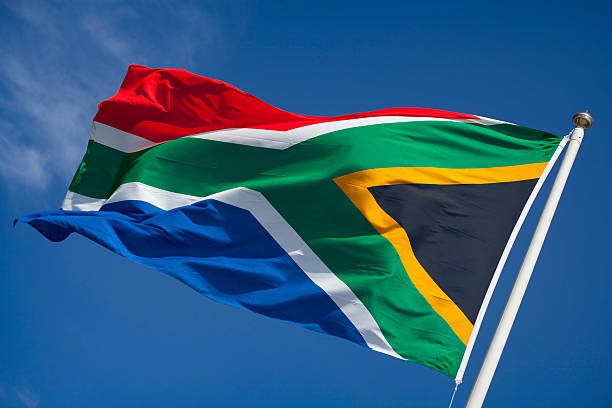When people speak about South African national holidays, they usually mean the official public holidays that apply to everyone.
They are recognised by law and cover everything from religious observances to historical commemorations. Each holiday has a story behind it, and together they form a calendar that blends tradition with reflection.
South African National Holidays
Here is the complete list of South African national holidays with their dates each year
New Year’s Day on 1 January
Human Rights Day on 21 March
Good Friday (date changes each year according to the Christian calendar)
Family Day (date changes each year, the day after Good Friday)
Freedom Day on 27 April
Workers’ Day on 1 May
Youth Day on 16 June
National Women’s Day on 9 August
Heritage Day on 24 September
Day of Reconciliation on 16 December
Christmas Day on 25 December
Day of Goodwill on 26 December
Holidays on March 21
March 21 is Human Rights Day in South Africa. It has great significance and is one of the recognized public holidays. As a remembrance of the sacrifices made in the struggle for equality and decency, the day honors the Sharpeville tragedy of 1960.
Schools and workplaces close on this day, and human rights awareness events are held in many towns. Some spend the time introspecting in private with their loved ones, while others participate in public events like marches. Although it is not as commercialized as the holidays in December or Easter, it nevertheless influences the flow of money. Programs are frequently organized by local councils, and small business owners profit from the crowds in parks or community centers.
Beyond just being aware of the list, it is helpful to consider the social and economic significance of these holidays for the nation’s citizens. Because although South African national holidays provide a respite from work, they can also have an impact on small enterprises, travel, and expenditure.
For instance, December. Knowing that people will go on shopping sprees on Christmas Day and the Day of Goodwill, stores plan months in advance. The effect is seen by grocery stores, apparel stores, and even internet companies. Sales at local bakeries and food stands increase during these periods. Families buy presents, cook meals, and frequently end up spending more than they had budgeted.
This also holds true during Easter, which brings with it Family Day and Good Friday. Given that households purchase chocolates, hot cross buns, and trip tickets to visit family, retailers place a lot of emphasis on these days. It’s simple to ignore how South African national holidays are interwoven with the country’s economy.
Employees also take note of when certain holidays are observed. People frequently refer to a holiday that falls close to a weekend as a “long weekend.” This is advantageous to travel agencies. Accommodations and flights fill up fast. Volumes at gas stations are greater. More is even collected by toll gates. Long weekends can be costly for those on a tight budget. The expense of a single vacation is frequently higher than anticipated.
Employers figure out the impact as well. Because all public holidays are recognized by South African labor law, workers who work on these days are entitled to paid time off or additional compensation. Retail establishments and eateries that remain open must pay greater wages. However, they frequently recoup their costs through further sales. It turns into a revenue and cost balancing act.
Women’s Day, Youth Day, Human Rights Day, and Freedom Day serve as reminders of the nation’s history and current state. They draw attention to the fight for social justice and equality. People go to events, demonstrations, or neighborhood get-togethers on these occasions. Even though they might not necessarily entail extravagant spending, they do generate economic activity. Local councils frequently plan parades and concerts. Unofficial vendors erect food stands close to public areas. Demand is rising even for transport operators.
Because of its connection to gastronomic culture, Heritage Day has gained widespread recognition. Many homes use braais to celebrate. Sales of meat, beverages, and firewood spike during this period. Grocery chains are aware of this and use deals to attract customers. Once more, the way money moves through society is influenced by public holidays.
Personal financial planning is also impacted by South African national holidays. Families usually plan their finances around these periods. People save money, for instance, for Easter vacations or December celebrations. The allure of holiday purchasing is felt even by people who are barely making ends meet. In order to meet expectations during these periods, some people wind up taking out loans, either from official lenders or unofficial networks.
Another important factor is travel. The tourism industry is impacted by public holidays in both directions. On the one hand, homeowners’ quick travels to nearby attractions are advantageous. Foot traffic is higher at game reserves, beaches, and cultural sites. International visitors, however, also schedule their trips around South African national holidays, particularly those that coincide with celebrations or major events. Demand is generated throughout the hotel sector by the mix of residents and visitors.
These holidays may even have an impact on the stock market from an investment standpoint. Around public holidays, trading volume on the Johannesburg Stock Exchange typically drops. Activity is slowed when banks and other financial institutions close. When preparing transactions, investors take note of these trends. It demonstrates how rest days affect financial systems.
The impact of national holidays on schooling is equally important to consider. Weekends are occasionally extended into longer breaks when schools are closed. After that, parents organize family vacations or daycare. The cycle of closures and reopenings may have an impact on monthly cash flow for people who pay school fees. When kids are at home, families who depend on school lunch programs may incur additional costs.
People who work in crucial services have conflicting feelings about public holidays. These days, firefighters, doctors, nurses, and police officers frequently work through. They might be compensated for overtime, which increases their income. However, it means missing out on family get-togethers. Financially speaking, that additional money can be helpful, but personally, the sacrifice is obvious.
For some South African national holidays, the retail industry gets ready far in advance. Campaigns for advertising and promotions are scheduled around them. Just a quick look at grocery store fliers demonstrates how tightly retailers align their tactics with the holidays. Toy sales before Christmas, reduced braai meat costs around Heritage Day, and discounted lamb legs around Easter all demonstrate how holidays may be used as a business opportunity.
Supply chain planning is another task that businesses must manage. Logistics firms are aware that demand will increase prior to holidays or long weekends. Revenue loss may result from delays on public holidays. Roads are congested for truck drivers. In order to prevent shortages, warehouses stock up early. Although these changes are expensive, they are required to meet demand during the holidays.
The practical impact of South African national holidays on individuals is that they can either increase expenditure or save money. Some households take advantage of these periods to relax and engage in inexpensive activities, such as visiting nearby parks or spending time at home. Others use them as a pretext to go shopping, eat out, or take vacations. One person may have debt on the same day while another may have savings.
Additionally, holidays serve as a reminder of the interdependence between the formal and informal sectors. Events associated with public holidays are generally times when street sellers flourish. For instance, a neighborhood park’s Heritage Day festival opens doors for small vendors. They sell drinks, food, and crafts to large groups of people. These are important for home survival even when they do not translate into enormous corporate profits.
Holidays even cause an increase in fuel use. Demand is raised by lengthy travels to family homes, tourist destinations, or places of worship. Convenience businesses and gas stations profit, but drivers are hit by increased expenses. Household budgets can be rapidly depleted by transportation expenses, particularly when paired with other holiday-related expenses.
The South African national holidays have become a part of the way people organize their year throughout time. For strategic purposes, businesses put them on calendars. Families make financial preparations for them. Employees anticipate them for relaxation or additional revenue. As a break from their studies, students wait for them. These holidays are a part of a cycle that impacts society on all levels, not sporadic pauses.
It’s also important to note that government services may be impacted by public holidays. Home Affairs offices, licensing centres, and municipal offices close on certain days. The closures must be accommodated for by anyone who requires official documentation. Ignoring this detail might cause applications to be delayed, which can impact company processes, travel, and employment.
Religious holidays, such as Christmas and Good Friday, have their own customs. Church services, get-togethers, and associated expenses are paid for by people. Travel, food, and clothing all appear as budgetary considerations. Often, there are expenses associated with what starts out as a day of introspection.
Holidays can cause tension even if they are supposed to be a time for relaxation. Some families experience pressure to entertain or purchase gifts in order to live up to expectations. Others endure increased workloads in jobs that stay open. Not every society experiences the same financial results. They may be viewed as leisure possibilities by middle-class households. The same days can occasionally result in debt for lower-income households.
South African national holidays continue to be an important aspect of the country’s identity. They have significance beyond spending or numbers. They serve as a reminder of victories, customs, and times of solidarity. They also demonstrate the tight connection between private money and public gatherings.
Planning around these holidays makes sense for anyone in charge of finances. Budgeting is made possible by knowing when they occur, whether that means putting money aside for festivities, avoiding pointless travel, or saving for gifts. Because public holidays are predictable, budgeting can be done around them. Those who choose to ignore them frequently end up unprepared.
See also: Huawei phones under R3000 in South Africa
South African national holidays are ultimately more than just vacation days. They are a component of the year’s framework. They have an impact on how families spend, how companies operate, and how communities unite. They have an impact on the nation’s mood as well as cash flow and investment trends. Although the calendar is set in stone, people’s reactions to it differ. Some people fall behind, some save, some spend, and some make more money. For this reason, these festivals have cultural and economic significance.


